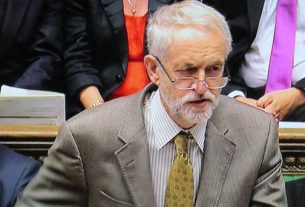Rishi Sunak has challenged the country to judge him on his pledge to deliver five promises to fix the country – but it’s his delivery of that same quintet that reveals his challenge to stay in Number 10.
Sunak’s big new year speech laying out his grand political vision, in five easy to remember pledges – halving inflation, growing the economy, reducing national debt, cutting NHS waiting lists, and “stopping the boats” crossing the channel – had about as much sparkle as Scarborough’s NY eve firework display.
Pointing at broken Britain and the myriad crises inflicting the country, the Labour party dismissed the PM’s promises, saying they “all things that were happening anyway; are so easy it would be difficult not to achieve them; or are aimed at fixing problems of the Tories’ own making”.
The New Statesman’s assistant political editor said the PM’s speech was “hot air and waffle” and could have been written by an “AI bot”. Had it been delivered by AI it may have garnered more excitement and enthusiasm than Sunak managed to muster.
Leaders inspire. Or they expire. Very quickly.
Ror all his personal-branding and wealth, Sunak has so far inspired very little. His performances in the Commons at PMQs are so poor he makes the beige knight Sir Keir Starmer appear positively dynamic. Today’s (Jan 4) speech was delivered in the same stilted-style that Sunak gives to all his scripts. Apparently, it should not matter. But leaders must inspire, so it very much does.
A “good” performance forgives all kinds of sins and helps explain the longevity of all kinds of unlikely political careers – Donald Trump, Silvio Berlusconi and Boris Johnson being prime examples.
So when a leader like Sunak lacks the dazzle to bamboozle, the content of their speeches becomes crucial. When the content is summarised as “hot air and waffle” alarms go off.
Tory members aiming to ‘take back control’ of party
Pressures from within the Tory, and threats to Sunak’s position inside No 10 are growing, particularly from those deluded enough to think disgraced former prime minister Boris Johnson is the future.
Key allies of Johnson have set up the Conservative Democratic Organisation (CDO) and are urging Tory party members to “take back control”.
Its president is none other than Lord Peter Cruddas – a Johnson appointed peer who was instrumental in trying to get Johnson on the ballot for last summer’s party leadership election (the one held to replace Johnson that took two months to finish).
Cruddas is a former boy scout, Tory party treasurer and “scandal-hit banker”, who was made a peer (it’s worth repeating, by Johnson) despite objections over his involvement in a cash-for-access political scandal. Three days after getting his lordship in January 2021, Cruddas coughed up a £500,000 donation to the party.
Now he wants to give party members control over candidate selection “with minimum interference” from Conservative campaign headquarters (CCHQ).
Rishi Sunak – the leader members never wanted
Party members never wanted Johnson to quit. They chose Liz Truss over Rishi Sunak. After gatekeeper-MPs had filtered the list. And they wanted Truss to stay on despite the disasters inflicted on party and country during her historic seven weeks as PM.
Members were denied a second chance to vote against the son of Indian migrants from east Africa when Penny Mordaunt failed to get enough MPs to back her challenge when Truss imploded. Johnson said he had the numbers to replace his replacement, but he withdrew. For now. Last night (Jan 3), on BBC’s Newsnight, three panellists forecastig the future agreed that Johnson will mount a bid to retake Downing Street after May’s local elections.
That’s the dream for Tory members who, for now, must endure the man they never wanted. Even if he did support Brexit.
Frustrations and discontent are reaching the ears of their parliamentary representatives. Many of whom never wanted Sunak either.
The CDO – whose chair is David Campbell-Bannerman, the former MEP who, with Cruddas, ran the failed campaign to get Johnson on the leadership ballot – are positioning to seize on the disgruntlement. Successfully doing so will take the party ever further to the right.
Former home secretary Priti Patel is an active supporter and the face of their recruitment campaign. Tory grassroots are “the heart and soul of our party…our greatest assets and advocates” that “should never be taken for granted,” said Patel.
“Party members are committed to our values of freedom, enterprise and opportunity and we need to empower them to have more say over our policies and candidates. That will make us stronger, more successful in government, and boost our membership numbers.”
The Guardian suggests the CDO is trying to mimic Momentum, the influential grassroots group that became a powerful voice in Jeremy Corbyn’s Labour party.
“Taking back control” for the CDO means reforming party democracy, giving members more power on candidate selections, party chairman and the chair of the Conservative Party Policy Forum (“here to find the world-changing, era-defining ideas and shape the policies of tomorrow).” Constituency associations should have the right “to select, and if necessary, deselect their MP”, they state.
Announcing their arrival on the political scene with a statement on the Conservative Post website, the CDO said: “In short, many of us are fed up with having left-wing candidates and a left-wing agenda imposed on us from above – we are in the Conservative Party, not Labour, for a reason.
“But we are not backing any one policy; or one person.”
What’s that old observation about when one can trust a Tory?




